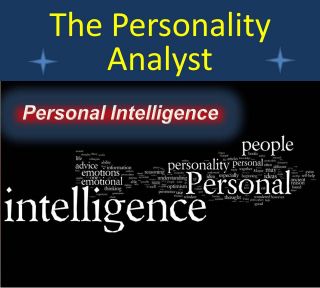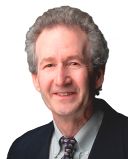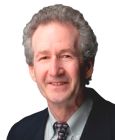Intelligence
Using Personal Intelligence in Planning our Lives
We can reason about the future, but much is left to chance.
Posted March 3, 2014
Note: 

Note:
Planning for the Future
Future planning is dynamic for most of us: We plan, and then as our circumstances change, we revise our plans. New opportunities arise, we fall ill, meet someone we grow to love, face a challenge, and learn to cope—life happens.
Psychologists envision personality as the orchestration of our mental lives. In place of the strings, woodwinds, brass and percussion sections of an orchestra, imagine for personality an emotion section, motive section, knowledge, expressive-acts, and self-control sections. Thinking about how our “mental orchestra”—our personality—works, allows us to know how each part of the orchestra might practice, play, and work together to make the music of our lives. The smarter we are about personality and the more we know how it works, the better we can negotiate our inner lives and the social pressures on those lives. Our personal intelligence is what enables us to do this. Our reasonably long lives allow us to feel control over our existence as never before—and yet it would be a mistake to believe we have anything like total control over what’s to come.
Nearly fifty years ago, the futurist Alvin Toffler remarked on the increasing pace of change in our society. He wrote:
“Western society for the past 300 years has been caught up in a fire storm of change. This storm, far from abating, now appears to be gathering force. Change sweeps through the highly industrialized countries with waves of ever accelerating speed and unprecedented impact…the racing rate of change…makes reality seem, sometimes, like a kaleidoscope run wild.”
Yes, that was over forty years ago. Toffler continued:
“…the acceleration of change…that reaches deep into our personal lives, compels us to act new roles, and confronts us with the danger of a new and powerfully upsetting psychological disease. This new disease can be called ’future shock…’”
Toffler was right about the pace of change—we experience the shock of change today in ways that he predicted—although he would likely have been dumbfounded by the particulars: the advent of the web, the narrowing of print journalism, GM’s bankruptcy (and emergence from bankruptcy), unanticipated terrorist strikes: All these affect our career opportunities and relationships. A young person who set out as a print journalist in 1995 could hardly have anticipated the rise of the web, the loss of classified advertisements, the rise of paywalls, or dozens of other changes that occurred within journalism over the past two decades.
Many of us may have made wise choices initially, picking a career or relationship that initially drew on the right parts of our personalities—that built on our values, plans, preferred social styles and abilities—but over time we or the situation changed. It is easy to see how society might change around us. We change too: Our values can shift, we may come to appreciate abilities that we hadn’t realized we possessed. In some cases our new self may be so different from the old one that we’ll need to change our lives.
Adjusting to a Changing Plan
If our life has changed, we can work on changing the social force we confront or work on changing ourselves. For example, if our job is changing, we can try to negotiate the way it changes so that it fits more of our preferences and skills. The other way to adjust is to change ourselves by learning to cope with the altered circumstances we face. Our new job in sales may emphasize serving the customer in comparison to our old job that emphasized earning a higher commission on what we sold. We may learn to take greater pleasure in helping customers and to adjust to a reduced income growth—or not.
Exiting the Situation
Sometimes, we may need to exit a situation. The psychologist Daniel J. Levinson and his colleagues studied men’s lives over the adult decades. Levinson often remarked on the problems men faced if their initial choices didn’t fit them well:
“…the man at around 30 decides that his initial occupational choice was not the right one—that it is too constraining, or that it is a violation or betrayal of an early Dream which now has to be pursued, or that he does not have the talent to succeed in it—and he makes a major shift in occupation and in life structure, sometimes including marriage…”
The later in life the person waits, the more costly the wait: “…It takes time to break away, to sever or modify old relationships and commitments. It takes time, also, to ‘break in,’ to enter a new world and create a new life.” Sometimes the wait is too long, with devastating outcomes. Those who are unable to grapple with the need for change, Levinson wrote, “become terribly weighted down and lose the vitality that one needs to continue developing through adulthood.”
So sometimes a fresh start is exactly what we need.
Reasoning About What to Do
So how do we reason through these issues and decide whether to revise our plans—and how to do so?
Some of our reasoning—and the choices we’ll make—concern issues about the outer world that most people would agree on: the apparent opportunities of a new job and the costs it entails—a lower paying job, perhaps; a move to a less desirable place to live; a gamble that could pay off with a great new position, but that risks something important in our lives.
Another part of our reasoning concerns ourselves, specifically the fit between who we are and our new choice, be it of a relationship, a career endeavor or some other calling. Usually, the better the fit, the better off we’ll be (although this is far from etched in stone). Determining the fit invovles a good deal of inner assessment, but only some people care about these issues. Some individuals have a fairly quiet ego—they don’t notice much about their inner selves most of the time beyond knowing when they are feeling tired or energetic or healthy or ill. Rather, they are focused on the outside world and (if they are lucky) they are flexible enough to thrive under many conditions and they know just enough about themselves and what they value to make reasonable life choices.
Other individuals do care about and regularly notice their inner lives. Those of us in this group are more aware and curious about ourselves. We use our personal intelligence to try to answer questions of who we are and to apply what we know about ourselves to determine what is best for us to do. Yet even people with high personal intelligence can become confused as to what’s the right choice—because our inner desires are sometimes hard to know and the real world options are ambiguous. When we are confused about such matters, we may find some clarification by talking these issues over with friends, mentors, or teachers.
It may be of some comfort to understand that in the end the best any of us can do is to play the odds. After we make a decision and act on it, we simply cannot know what the best choice might have been—we end up living what we choose and making the best of it. There’s no problem in doubting a past choice, but I think it helps to remember that we usually had good reasons for choosing as we did at the time. We are not soothsayers. Nor can we be certain how things might have turned out had we made a different choice. Under such conditions, having some sense of direction, some mission, some guidance provided by personal intelligence—which elucidates our values and goals-- may be helpful to making sense of our life’s journey.
References
“Western society for the past 300 years has been caught up in a fire storm of change… This new disease can be called “future shock…” condensed from p. 9 of Toffler, A. (1970). Future shock. New York: Bantam Books.
“…the man at around 30 decides that his initial occupational choice was not the right one…” p. 22 of Levinson, D. J., Darrow, C. M., Klein, E. B., Levinson, M. H., McKee, B. (1976). Periods in the adult development of men: Ages 18 to 45. The Counseling Psychologist, 6, 21-25.
“…It takes time to break away, to sever or modify old relationships and commitments. From p. 106 of Levinson, D. J. (1977). The mid-life transition: A period in adult psychosocial development. Psychiatry, 40, 99-112.
“become terribly weighted down…” quote from p. 25 of Levinson, D. J., Darrow, C. M., Klein, E. B., Levinson, M. H., McKee, B. (1976). Periods in the adult development of men: Ages 18 to 45. The Counseling Psychologist, 6, 21-25.
An equal number of people… The uninterested people I’m describing are likely low in psychological mindedness and experience a “quiet ego”—they are not so self-concerned. When I say “An equal number of people..” I’m dividing us between those who are below average in psychological mindedness and have quiet ego from those who are above average in psychological mindedness and have a relatively noisier ego. Finally, I’m simplifying because I don’t know the relationship between psychological mindedness and quiet-noisy egos.
Copyright © 2014 by John D. Mayer




